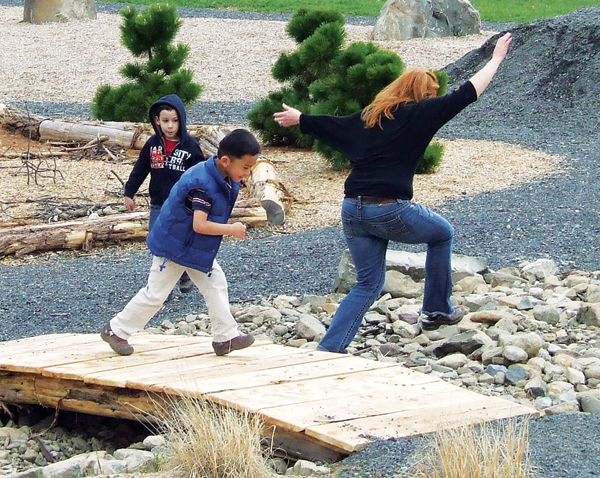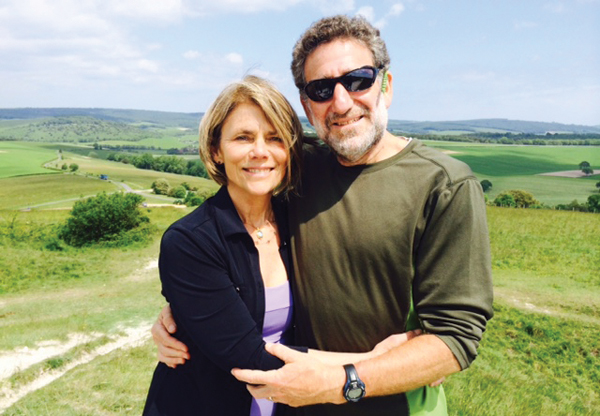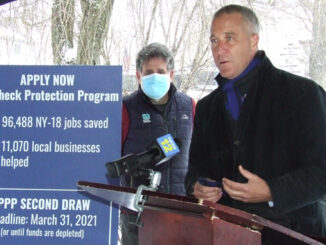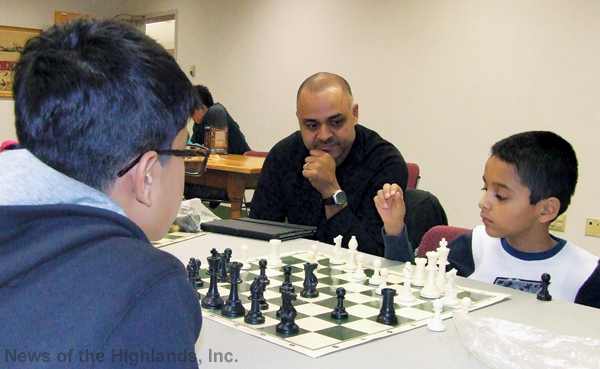
In the last 30 years, studies have shown a decrease in the amount of time children spend playing outdoors. Four generations ago, children wandered a mile or more from home, but with each passing generation the distance has drastically decreased. Now kids don’t venture far beyond their backyard. Instead they’ve traded sticks and stones for computer screens and remote controls.
The Hudson Highlands Nature Museum is trying to break that trend by promoting nature play (unstructured play in natural settings) and emphasizing how it directly relates to its mission “to create responsible caretakers of the environment.”
The museum has received a grant to develop ways to connect young children with nature through play. The program is called ECAN (Early Childhood Active in Nature) and it will be running over the next two seasons for the public, mostly around their interaction in Grasshopper Grove, and for teachers and students in 24 other preschool and early childhood programs in the region this fall and next spring.
On Monday, a small group of museum friends were invited to attend a workshop. Among the speakers was David Sobel, a leader in the field of child development, place-based education, and nature play. He spoke about the benefits of nature play.
Sobel said kids should be allowed to bond with the natural world because they’ll be more likely to grow up to be land preservation or land conservation advocates.
A study of the relationship between nature play and an adult’s environmental behavior has shown wild nature play (like fort building) correlates with a strong environmental attitude and behavior (such as turning off lights or purchasing green products). Domesticated nature play (4-H, gardening, and animal care) results in strong environmental attitude and slight behavior (less likely to participate in green practices). Environmental education relates to neither.
Overgeneralizing, Sobel said those children who build forts are more likely to recycle.
Not only does playing outdoors lead to an increased care for the environment, but doing so also benefits the body.
Increased activity leads to better health as more calories are burned, resulting in less obesity. Contact with nature increased one’s mental well being as a person is more resistant to stress and less prone to behavioral disorders. Sobel said doctors are prescribing outdoor play to reduce the symptoms of Attention Deficit Disorder.
Being outdoors exposes children to bacteria and allergens which can lead to fewer illnesses later in life. Sobel said when infants put things in their mouth it helps to make them immune to local bacterial fauna. Nature play also leads to advanced motor skills such as balance and agility.
One of the reasons why parents discourage play outdoors is the fear of injuries. Ironically, sports like hockey and football can be dangerous, but more people see the benefits of playing sports, so the risks are overlooked. When it comes to an activity like climbing trees, only the risks are considered. Sobel said children are more likely to be injured falling out of bed than from trees.
A child’s interaction with strangers is also another fear parents have. Sobel said the rate of child abduction has decreased over the last 30 years, but the sense of perception has increased. He added a child is 1,600 times more likely to be injured in a car accident than to be abducted by a stranger.
These parental fears have caused the child’s natural world to shrink over the last three decades.



